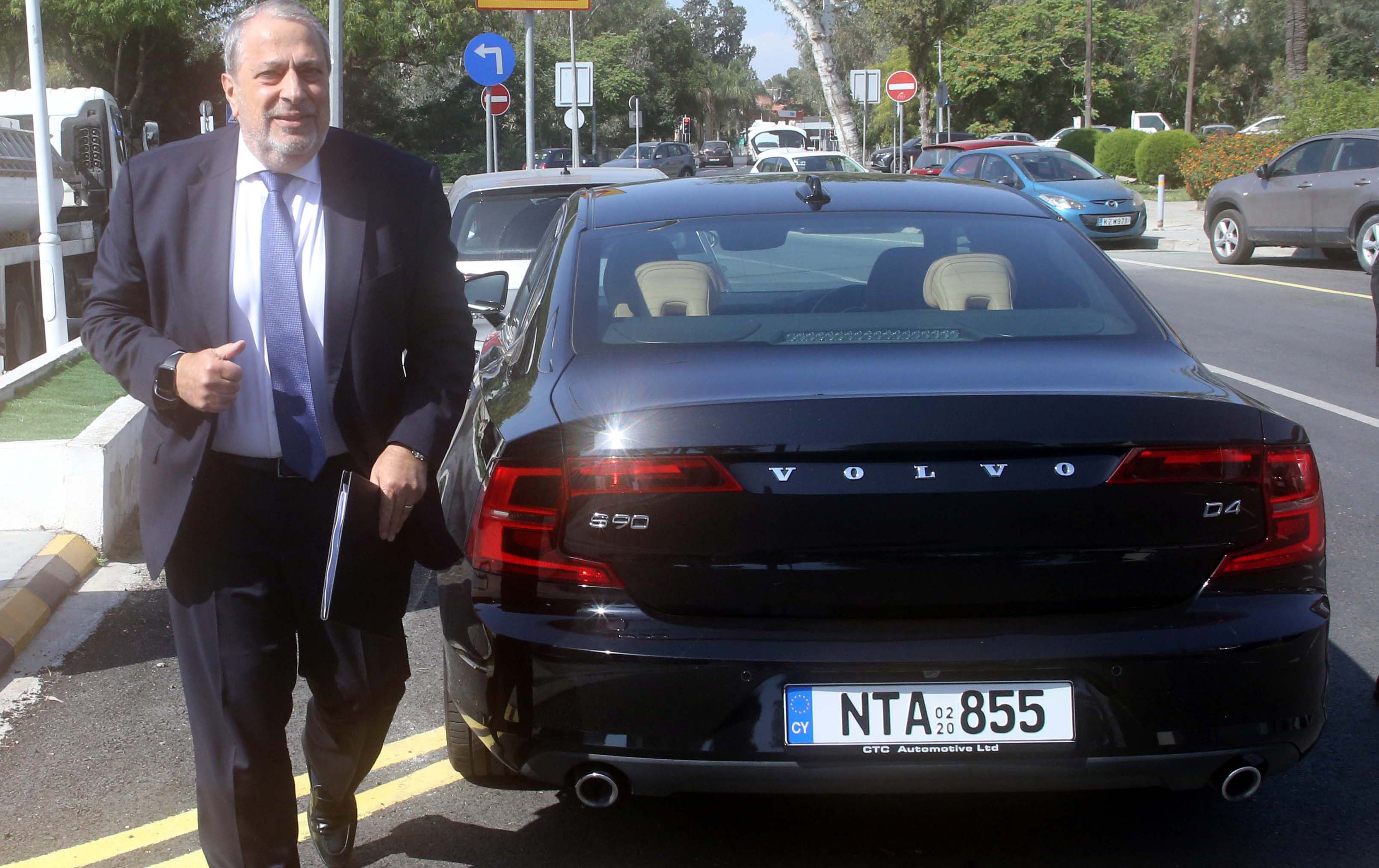The Supreme Constitutional Court is set to announce its decision on June 5 on whether attorney-general George Savvides is constitutionally allowed to initiate dismissal proceedings against auditor-general Odysseas Michaelides.
During Wednesday’s hearing which began at 9:30am and lasted until midday, the panel of judges heard the arguments from both sides as part of the opposition proceedings put forth by Michaelides.
They are a legal objection to Savvides’ motion to have Michaelides dismissed citing inappropriate conduct.
The auditor-general’s defence team argued that only the president of the Republic can initiate proceedings to have Michaelides removed, as he is the authority which appoints independent officials.
One of Michaelides’ lawyers George Triantafyllides argued that President Nikos Christodoulides himself has praised the auditor-general and his work.
As such, he questioned how the attorney-general could move in such a way which contradicts the president’s statements.
“If the president of the Republic states that he is satisfied with the auditor-general, how can the attorney-general have the right to file a dismissal application?” Triantafyllides argued.
“This is very contradictory and it is leading us into absurd situations.”
Triantafyllides also argued that under the constitution, there are 28 independent officials who can be fired in the same way – which include both the auditor-general, attorney-general and judges from the Supreme Court and Supreme Constitutional Court.
Accepting that the attorney-general has the locus standi to have them dismissed, effectively means 27 independent officials can be fired either by the attorney-general or the president but the attorney-general can only be dismissed by the president.
This creates a significant constitutional aberration, he said.
“The position that the attorney-general is the primary defender of legality to protect the public interest should not be used as a panacea to grant him powers not provided for in the constitution.”
Michaelides’ legal team also includes Pambos Ioannides and Christos Clerides, the former head of the bar association.
In his arguments, George Valiantis, a lawyer from the attorney-general’s legal team, referenced articles 112 and 113 of the Constitution.
He argued that the articles “bestow the highest authority on the institution of the attorney-general, indicating the constitutional lawmakers’ full trust in the office”, Valiantis said
“The Constitution itself elevates the institution and trusts it to act independently, and in no case does it require the consent or approval of the president of the Republic.”
Valiantis asked the court to exclude Christodoulides’ statements from proceedings, arguing they were selectively chosen by Michaelides’ team and were used to make “an impression”.
Featuring in Wednesday’s arguments was also the case of former deputy attorney-general Rikkos Erotokritou, who was dismissed following proceedings initiated by attorney-general at the time Costas Clerides.
Valiantis said the case clearly highlights that the attorney-general does have the constitutional powers to have an independent official removed from their post.
To this, Triantafyllides retorted that was a wholly different case, as the attorney-general was dealing with ‘in-house’ issues.
“Only the president of the Republic has the right to file a dismissal application for any institution. A serious constitutional deviation will occur if the decision is made to dismiss the auditor-general following the attorney-general’s application.
“If you grant this right to the attorney-general, the same right is automatically extended to the deputy attorney-general,” Triantafyllides said.
“The Constitution is structured to clearly delineate the responsibilities of each institution. We cannot vaguely and abstractly claim that the attorney-general can file a dismissal application in defence of public interest.
“What we are attempting to do here is to give the attorney-general the right to submit an application to the council whenever he wishes,” Triantafyllides said.
Previously, judge Nikolas Santis recused himself due to his son’s employment at a law firm involved in the case.
Additionally, two other council members raised conflict of interest concerns due to personal cases handled by two law firms involved in the trial. The advocates did not object to their exclusion from the council’s composition.
The next hearing will take place on June 5 at 9:30am.








Click here to change your cookie preferences